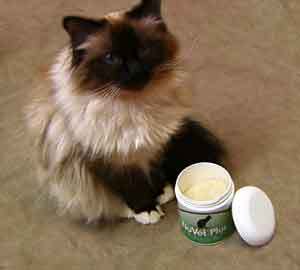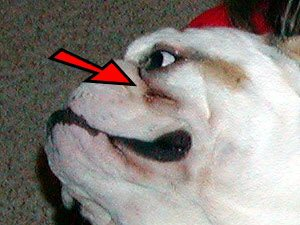QuestionCan felines get strep throat?
AnswerHello Carolyn -
Cats cannot get strep throat per say but they can contract rhinotracheitis which is similar. It is an upper respiratory infection.
Feline Upper Respiratory Disease Complex is the term used to describe a condition affecting the mouth, nasal passages, sinuses, and upper airway in cats and kittens. There are multiple causes of feline upper respiratory complex, but 80-90% of the cases are caused by feline herpes-1 (also called feline rhinotracheitis virus) and calicivirus. Other causes include Chlamydophila felisi (previously termed Chlamydia), feline reovirus, Bordetella bronchiseptica, Pasteurella spp., and mycoplasmas. Infections and symptoms by some of these agents may occur secondarily to an infection with rhinotracheitis virus or calicivirus.
Both feline rhinotracheitis virus and calicivirus are spread through contact with the discharge from the eyes and nose of an infected cat. This usually occurs through direct cat-to-cat contact. Food dishes, hands, bedding, etc., which have been contaminated with infected discharge, can transmit these viruses from one cat to another.
The diagnosis of feline upper respiratory disease complex is made based on medical history (e.g., vaccination status and possibility of exposure to an infected cat), clinical signs, and rarely through special laboratory tests to determine the exact cause of disease, e.g., isolating the virus. If a cat has recurrent episodes of disease, has signs of disease even though it was vaccinated, or the symptoms last longer than two weeks, the cat should be tested for feline leukemia virus (FeLV) and feline immunodeficiency.
Most cats infected with feline rhinotracheitis virus or calicivirus will become chronic carriers of the virus. This means they will continue to be infected with the virus but not show any signs of the disease. In the case of rhinotracheitis (herpes-1), cats will often shed the virus in secretions from the eyes and nose after they have been stressed, e.g., boarding, moving, new addition to the household, nursing kittens, etc. Cats with calicivirus will shed the virus continually for years. Cats who have been vaccinated for calicivirus and then exposed to an infected cat may become infected with the 'wild' virus (the strain of virus that occurs naturally and can cause disease, not the vaccine strain), never show signs of disease, become carriers of the wild virus, and continue to shed the wild virus.
I apologize for not getting back to you sooner, I have been having some computer problems and am finally able to respond.
I hope this information has helped you.
If you would like information on natural and herbal remedies for human and animal concern please contact me at wintersaurora@yahoo.com and I will be happy to assist you. I also offer a catalog of home made herbal remedies which I can send to you as well.
Thank you and best wishes.
Sincerely,
Sharon Hubbs, AHG
Certified Natural Health Consultant & Herbalist

 French Bulldog skin problems ; Yeast and Probiotics / NuVET Plus ;
QuestionQUESTION: I have a 2 year old Frenchie female w
French Bulldog skin problems ; Yeast and Probiotics / NuVET Plus ;
QuestionQUESTION: I have a 2 year old Frenchie female w
 TEAR STAINS NuVet Plus; Maltese Tear stains;
QuestionI just bought the wafers you mentioned on craig
TEAR STAINS NuVet Plus; Maltese Tear stains;
QuestionI just bought the wafers you mentioned on craig
 Cats too? Yes, NuVet for felines; Hot spot spray for itchy lower back;
QuestionMy cat has itchy skin--especially his lower bac
Cats too? Yes, NuVet for felines; Hot spot spray for itchy lower back;
QuestionMy cat has itchy skin--especially his lower bac
 Bulldog-allergies ; tear stains ;
QuestionHi Marie,
I have a 8yr old Bully that has poul
Bulldog-allergies ; tear stains ;
QuestionHi Marie,
I have a 8yr old Bully that has poul
 acl tear alternatives to surgery ; supplements for acl tear;
QuestionI have a 5 year old pekapoo with an acl tear th
acl tear alternatives to surgery ; supplements for acl tear;
QuestionI have a 5 year old pekapoo with an acl tear th